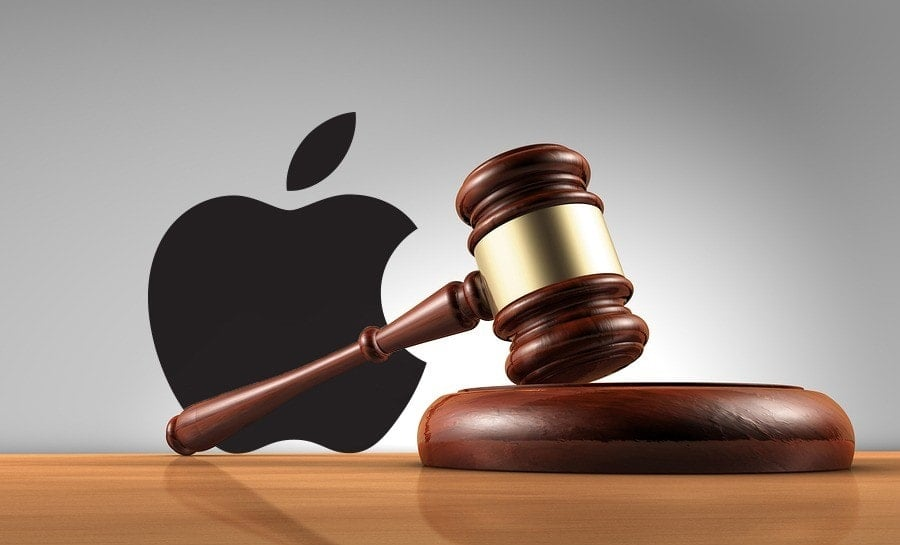Apple Inc. is currently embroiled in a new class action lawsuit that highlights concerns over the security and safety of the applications available in its App Store. The lawsuit was initiated by Danyell Shin, who alleges that her financial losses—amounting to over $80,000—were a direct result of the company’s negligence in allowing a fraudulent cryptocurrency app called ‘Swiftcrypt’ to be listed. Filed in the US District Court for the Northern District of California, the lawsuit aims to represent all individuals who have fallen victim to similar scams facilitated by purportedly safe apps on Apple’s platform. Shin claims that she created an account on Swiftcrypt in 2024, lured by its availability in the App Store and the assumption that it underwent rigorous vetting by Apple. Unfortunately, after investing substantial sums, she found the app dysfunctional and her funds vanished, later realizing it was part of a notorious ‘pig-butchering’ scheme—an online scam designed to extract significant investments from unsuspecting victims before abruptly cutting access to their money.
The lawsuit raises pertinent allegations against Apple, suggesting that the company not only failed in its promise of a secure App Store but also inadvertently endorsed a fraudulent operation through misleading advertising. Shin’s legal team asserts that Apple’s representation of the App Store as a ‘safe and trusted place’ creates a false sense of security, contributing to the exploitation of users. Furthermore, they point out that Swiftcrypt did not fulfill Apple’s own licensing and regulatory requirements for cryptocurrency applications. The plaintiffs contend that Apple profited from in-app transactions linked to the scam while simultaneously compromising user safety and integrity. As part of their legal action, they are seeking restitution for the financial losses suffered and requesting Apple to revise how it promotes the safety of third-party apps, particularly those dealing with cryptocurrencies, amidst growing scrutiny from both users and regulatory entities. This lawsuit is particularly significant given the recent activity by the US Department of Justice, which indicated a crackdown on cryptocurrency-related fraud, underscoring the urgent need for accountability among major tech players in maintaining consumer protection in digital finance.
Allegations Against Apple in the Swiftcrypt Case
Apple is now embroiled in a class action lawsuit filed in the US District Court for the Northern District of California. The lawsuit, initiated by Danyell Shin, claims that Apple permitted the fraudulent cryptocurrency app, Swiftcrypt, into its App Store. Allegedly, Shin lost over $80,000 while using Swiftcrypt, which was marketed as a safe investment platform for cryptocurrency. The lawsuit seeks to represent all users duped by this app and to hold Apple accountable for its purported negligence regarding app vetting.
According to court documents, Shin claims she was misled by Apple’s promises that the App Store is a ‘safe and trusted place’ for downloadable apps. Although Apple asserts that it employs a rigorous approval process to ensure app security, the lawsuit argues that Swiftcrypt did not meet the company’s established guidelines for cryptocurrency apps, which require such applications to be run by licensed and regulated entities.
“We are committed to providing a secure environment for our users,” alleged a representative from Apple. While they emphasize the rigorous app-checking protocols, the backlash against this case suggests that more scrutiny is necessary regarding the vetting process, particularly for financial apps where users are at a higher risk of fraud.
The Wider Implications of the Swiftcrypt Lawsuit
This lawsuit raises significant questions about Apple’s responsibility in protecting consumers from fraudulent applications within its ecosystem. The case comes in the wake of a broader crackdown on cryptocurrency fraud, with the US Department of Justice announcing record seizes related to global pig-butchering scams. The implication here is that tech giants, like Apple, may be failing to implement adequate safeguards to prevent such schemes from proliferating.
Shin’s legal team asserts that Apple not only failed to enforce its own rules effectively but also profited from in-app transactions involving users. This has intensified discussions on whether companies must take greater responsibility for the apps they host, especially in light of recent allegations of anti-competitive practices regarding cryptocurrency. The court dismissed a similar case in March 2024 against Apple but allowed it to be refiled, indicating ongoing concerns.
As the lawsuit unfolds, the potential for Apple to revise its advertising policies and app screening processes could come under increasing pressure. If successful, the class action could not only provide compensation to affected users but also prompt significant changes in how the App Store is managed to mitigate future fraud.
Summary
Apple is facing a class action lawsuit filed by Danyell Shin in the US District Court for the Northern District of California, after she allegedly lost over $80,000 due to a fake cryptocurrency app called ‘Swiftcrypt’ that was listed on the App Store. The lawsuit claims that Apple misled users by presenting the App Store as a safe platform for downloading apps, despite reports that Swiftcrypt did not comply with the company’s own guidelines for cryptocurrency applications. Shin, who founded Swiftcrypt in 2024 through an online investment group, believed the app was legitimate because of its availability on the App Store. However, after investing significant amounts of money, she discovered it was part of a ‘pig-butchering’ scam, which cuts victims off after convincing them to invest further. The lawsuit not only seeks compensation for Shin and others harmed by the app but also criticizes Apple for profiting from such scams and failing to adequately protect users. This legal action comes amid concerns over Apple’s handling of cryptocurrency apps, reflecting ongoing scrutiny of the company’s practices.



More Stories
Perplexity AI Video Generation: New Feature Unveiled on X
SpaceX Starship Explosion: Major Setback Before Tenth Test Flight
ChatGPT Enterprise Pricing: New Pay-As-You-Go Model